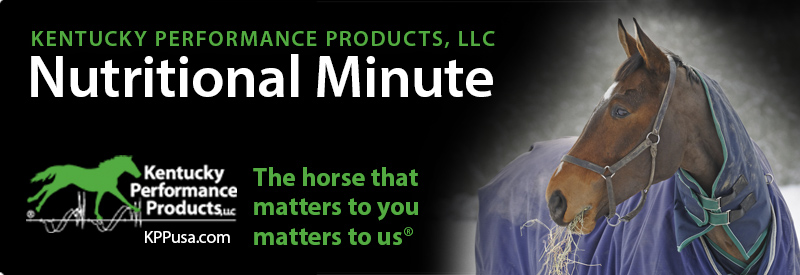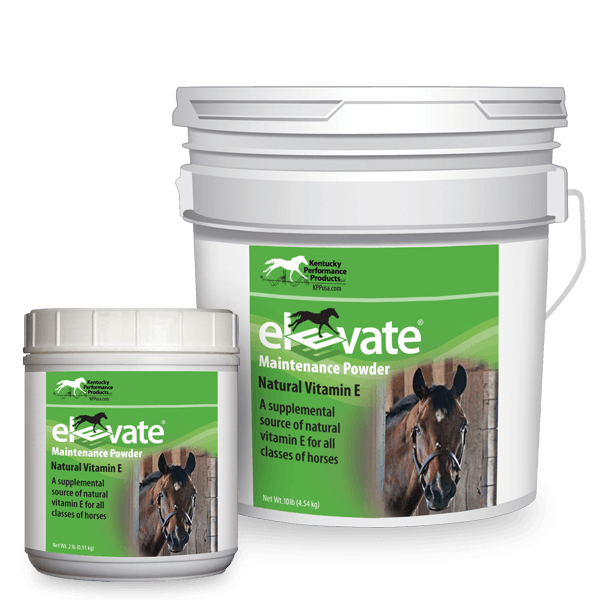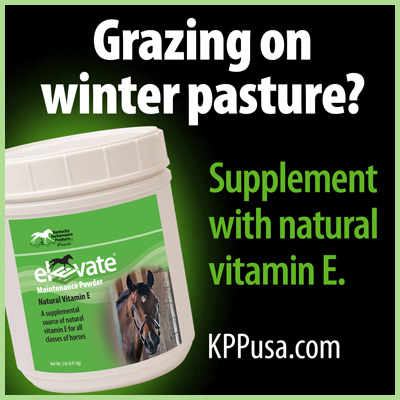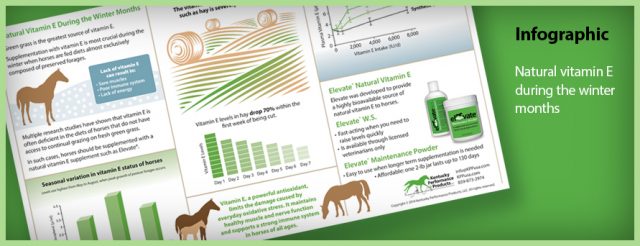
Vitamin E deficiency: Horses at risk during winter
Fast Facts
Vitamin E is an essential nutrient for horses
Vitamin E cannot be synthesized by the horse; therefore, it is considered an essential nutrient. The best source of vitamin E is fresh green grass; however, the potency of vitamin E declines very quickly once forages are harvested and dried.
Vitamin E requirements vary from situation to situation. Multiple research studies have shown that vitamin E is often deficient in the diets of horses that do not have access to continual grazing on fresh green grass, or those grazing on winter pasture.
Performance horses with demanding workloads, growing horses and seniors can be exposed to increased levels of oxidative stress and therefore require higher levels of vitamin E in their diets. Studies reveal that horses challenged by neurological disease benefit from supportive natural vitamin E.
Tips and Topics
Researchers Confirm Vitamin E Lower in Horses Without Access to Pasture
Horses are managed in varying conditions throughout the world. A vast number of them do not have access to growing pasture year-round due to geographic region, season, training schedules, or specific management routines. Because of their limited intake of fresh forages, these horses do not consume sufficient vitamin E for optimal health. Insufficient vitamin E in the diet can lead to muscle problems and impaired immune function.
Canadian researchers have confirmed a long-held suspicion among equine nutritionists that horses may need additional vitamin E when not consuming fresh, high-quality pasture grasses (Blakley et al., 1994). Read full article.
In The Spotlight
Natural Vitamin E During the Winter Months
Click here or on the image to download your FREE infographic.
Vitamin E is most crucial when horses are fed diets almost exclusively composed of preserved forages.
 Purchase
Purchase


"*" indicates required fields


